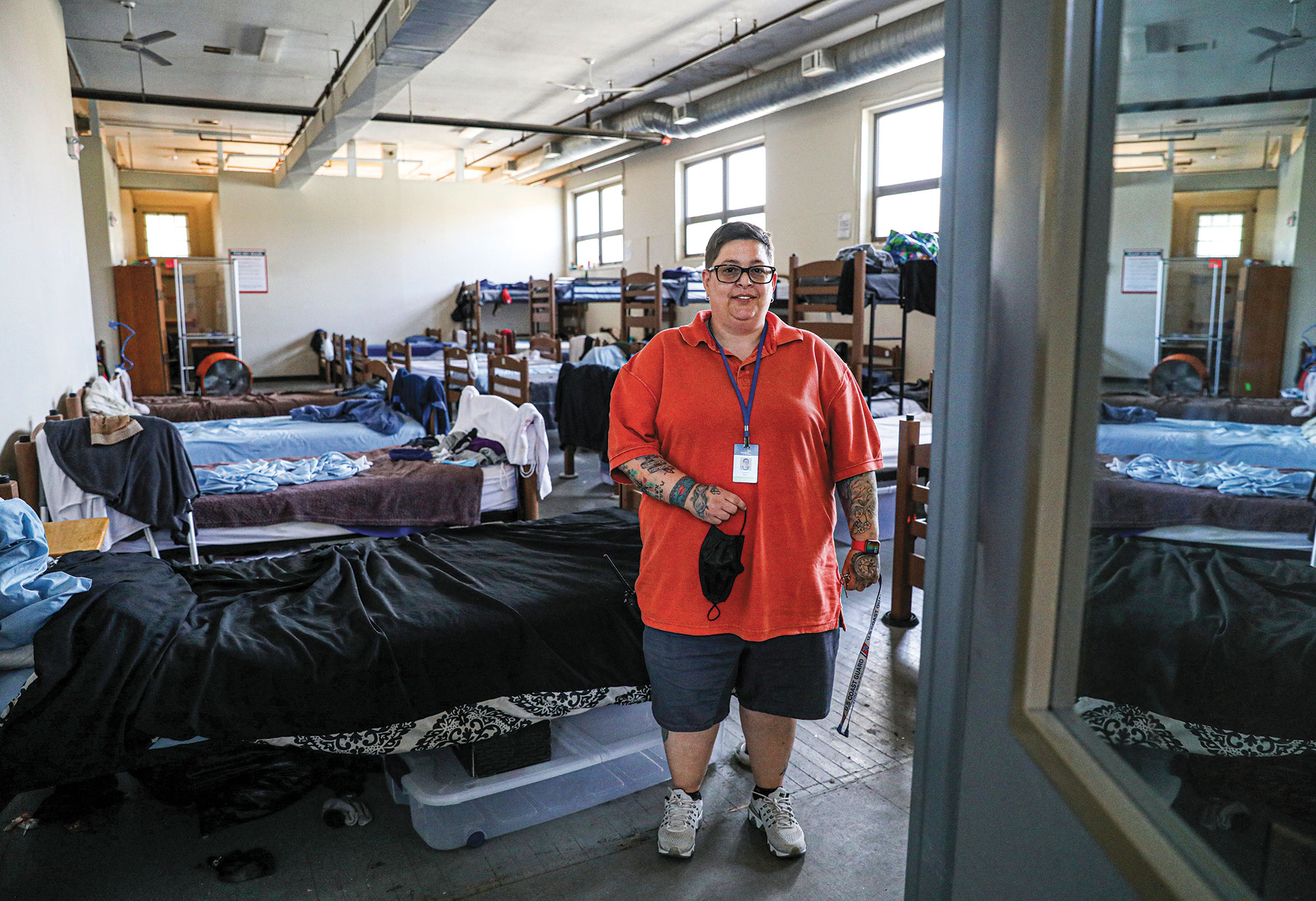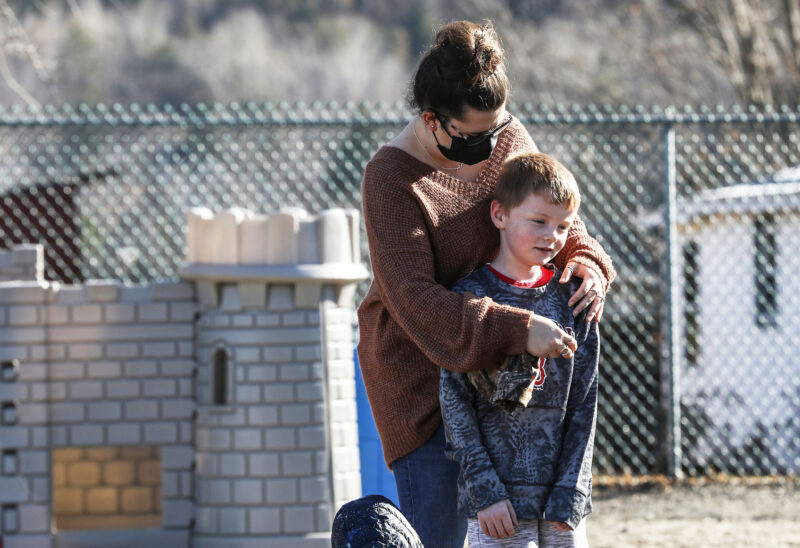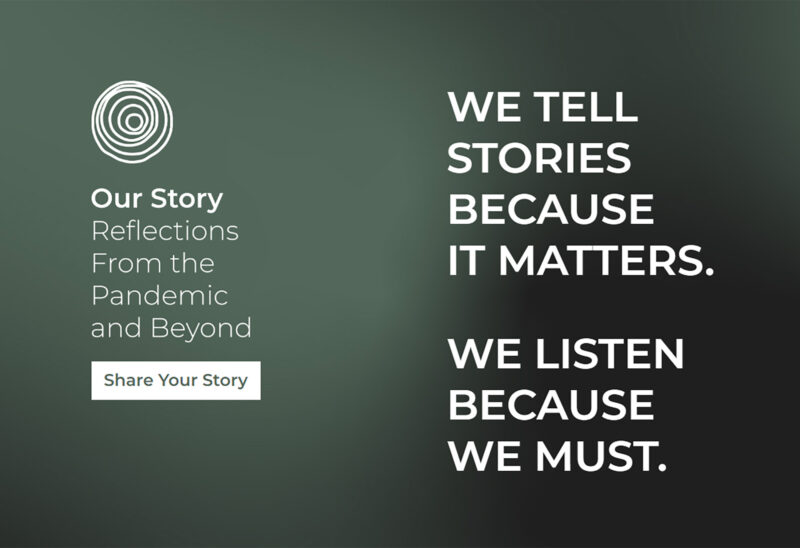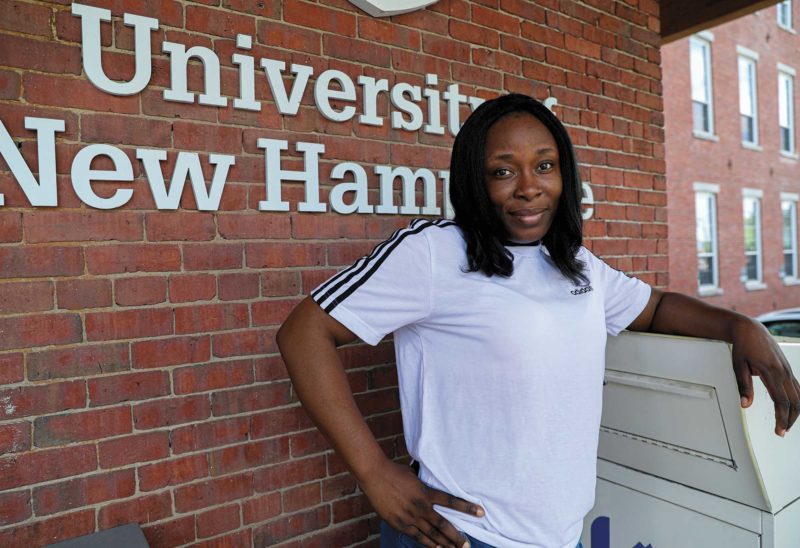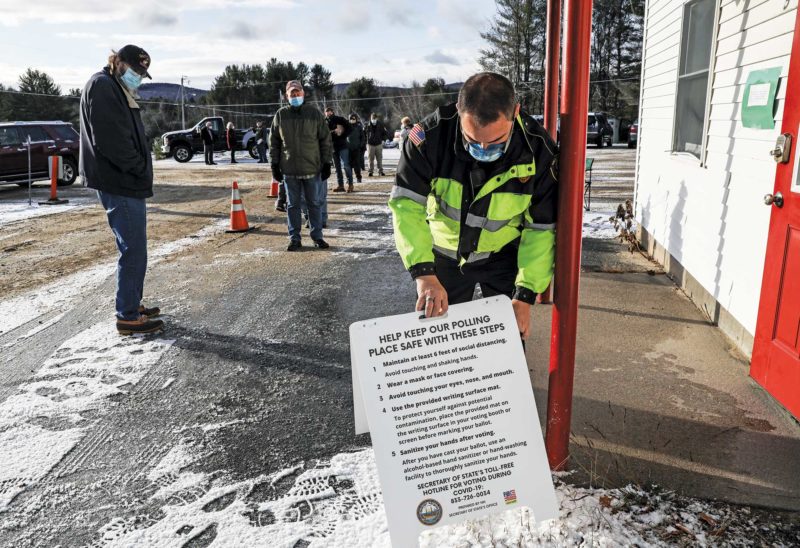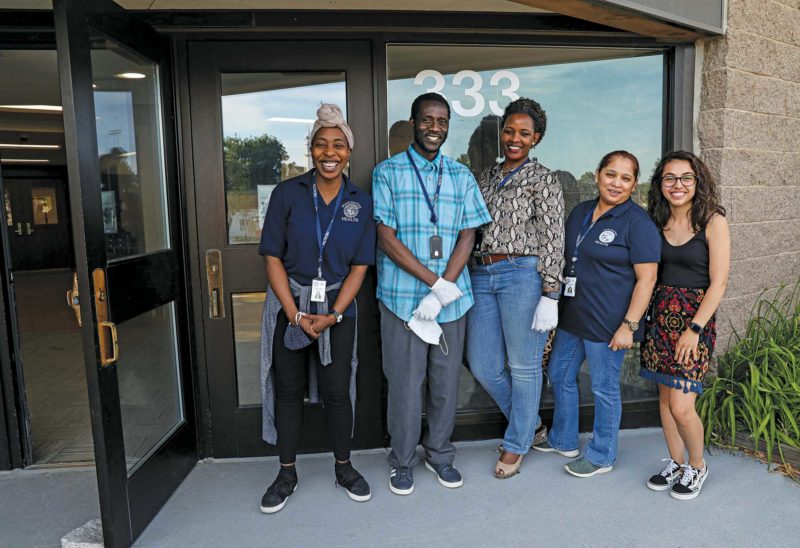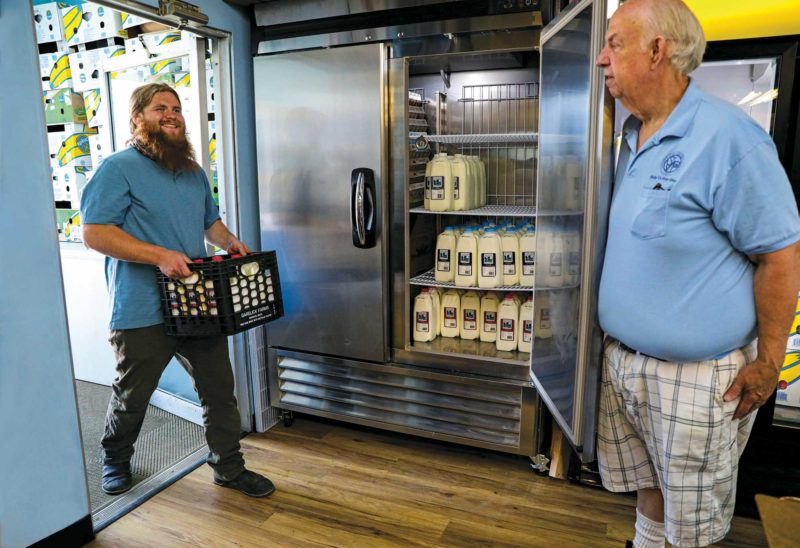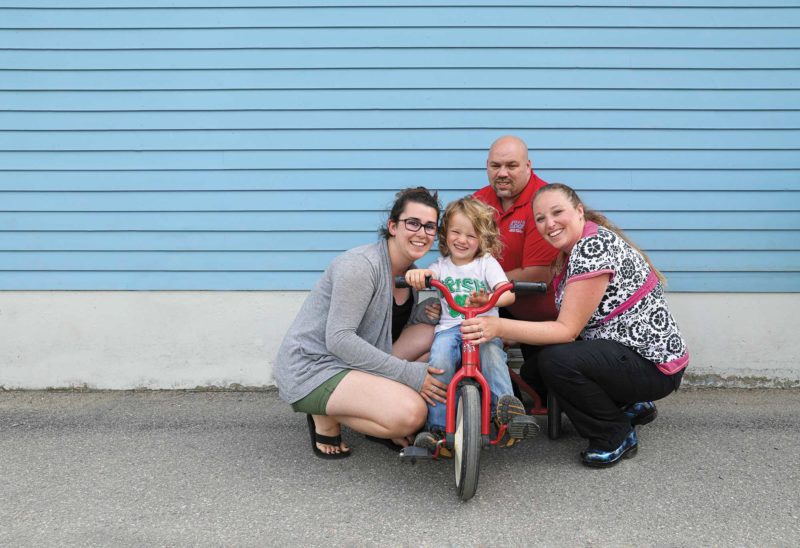It was April of 2020. Everyone who could was working from home, going to school from home, grocery shopping curbside and staying away from crowds.
Annie Day decided to take a new job: She would manage the Families In Transition Adult Emergency Shelter. More than 100 people come here for safe shelter and warm meals in a congregate space — and for services that help them overcome barriers to employment, housing and more.
This U.S. Coast Guard veteran, who was born and raised in Manchester, gloved up, strapped on an N-95 mask, pulled down a face shield and went to work.
She was just one of the hundreds of “everyday superheroes” who work with people without homes and whose dedication, ingenuity and love for their communities kept shelters around the state open for people who needed them.
A grant from the Foundation’s Community Crisis Action Fund very early on — before public funding became available — helped shelters around New Hampshire adapt during the crisis. (Additional funding from the Foundation would also support coordinated COVID testing across the state’s network of shelters.)
The early funding helped shelters with things like handwashing stations and thermometers, PPE, decompression and quarantine sites to prevent spread among residents, outreach to people who needed help and hazard pay for staff — whose jobs had become exponentially more hazardous. When Annie’s mom got laid off during the pandemic, hazard pay meant Annie was able to do things like cover her mom’s cell phone bill so they could stay in touch.
The building where Annie comes to work is one whose corridors are etched in her muscle memory. It was the Girls’ Club she attended as a child.
“This is kind of where I started and got supported in the community,” Annie said. “I believe in serving community. I am proud of the work we do here.”

